The views expressed in our content reflect individual perspectives and do not represent the authoritative views of the Baha'i Faith.
Journalism is the business of bringing the news of the day to the masses. It is about the process of fact finding. One of its first rules is reporting the facts of the five W’s: Who, what, when, where and why. Truth telling, in this process, is key. Ethics become paramount. The newspaper, magazine, radio, television or website, which compromises in this delivery of truth, soon loses the trust of its public. But, today’s media ethics seem to be threatened more than ever before.
These days, Britain is embroiled in a $300 million public enquiry into the conduct of major newspapers in that country.
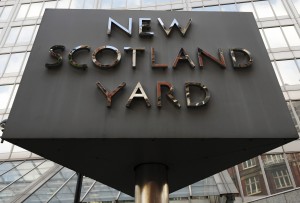
New Scotland Yard in London
Scotland Yard has arrested some fifty editors, reporters and investigators. The allegations involve phone hacking, police pay offs and other related criminal offenses. Truth and trustworthiness seem to be the real victims in this affair.
Meanwhile, the advent of news websites and weblogs has democratized the process of gathering and reporting news and given access to the masses. However, the issues and challenges of ethics in media have not gone away but become even more complex. The questions of who checks the facts behind the tweets, and where news aggregators get their news, cast shadows over this recent liberation.
One of the main courses in any Broadcast Journalism university department is ’Ethics’. The course material ranges from the general rule of staying objective to the specific: not belonging to a political party while reporting on the news.
Our modern media, however, has stretched these ethics to the limit where they are almost unrecognizable. With the advent of popular punditry, the media have turned into the pulpits of evangelical newshounds equipped with devout zeal, promoting their own opinions and ideology. The trouble with this kind of programming is that it has completely changed journalism. It is extremely difficult for the evening news to compete with this kind of salacious reporting. So, there is no way out, but to stoop to the same level. News reporters now, often give their own take on the news while in the field. There is a difference between a reporter giving personal impressions of a natural disaster and one who takes center stage and becomes the focus of the story. The cult of celebrity has done a lot of damage to our media and, as a result, the reporter can often sell the news better than the facts!
While phone hacking and paying police officers for tip-offs is the extreme of how the media can be operated, the slippery slope of degrading the role of media in bringing the truth to the masses is a much more insidious and gradual demise.
Over a century ago, Baha’u’llah, the Prophet-Founder of the Baha’i Faith spoke on the important nature of the service provided by the media,
“In this day the mysteries of this earth are unfolded and visible before the eyes, and the pages of swiftly appearing newspapers are indeed the mirror of the world; they display the doings and actions of the different nations; they both illustrate them and cause them to be heard. Newspapers are as a mirror endowed with hearing, sight and speech; they are a wonderful phenomenon and a great matter.”
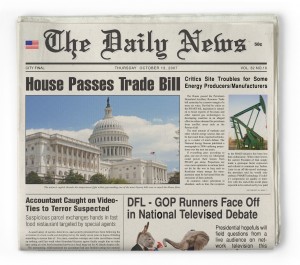 But it behooves the writers and editors thereof to be sanctified from the prejudice of egotism and desire, and to be adorned with the ornament of equity and justice. They must inquire into matters as fully as possible in order that they may be informed of the real facts, and commit the same to writing.”
But it behooves the writers and editors thereof to be sanctified from the prejudice of egotism and desire, and to be adorned with the ornament of equity and justice. They must inquire into matters as fully as possible in order that they may be informed of the real facts, and commit the same to writing.”
The analogy of a mirror is most apt. When a mirror is covered in dust and filth, it cannot reflect a true image!
Baha’u’llah urges the ‘writers and editors to be free of ‘the prejudice of egotism and desire’. This leaves very little room for the cult of personality and the fame-seeking nature of our western society and broadcast media in modern times. He also lays the responsibility of upholding the truth and justice on writers and editors. The individual reporter and the editor must also be the watchdogs as no outsider can entirely ensure the safeguarding of the truth. Individual integrity, then, becomes vital. In this regard, Baha’u’llah spoke clearly,
“Truthfulness is the foundation of all human virtues.”
This can be understood in so many ways: that we cannot demonstrate the human qualities of justice and equity, trustworthiness and fairness without truthfulness; that we cannot call ourselves human without truthfulness; that we cannot advance human civilization without truthfulness.
Furthermore, Baha’u’llah’s admonishment to ‘inquire into matters as fully as possible’ means that there are no shortcuts. Investigating the truth requires hard, honest labor.
In the end, the reward of a reporter or editor lies in the knowledge that each has played his or her part in bringing truth, the very foundation of human civilization, to the fore. As Baha’u’llah’s son, Abdu’l-Baha explained, “Each man has been placed in a post of honor, which he must not desert. A humble workman who commits an injustice is as much to blame as a renowned tyrant. Thus we all have our choice between justice and injustice.”


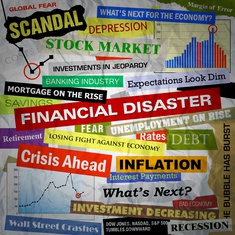

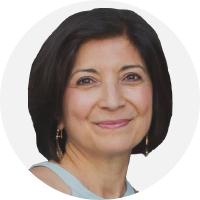

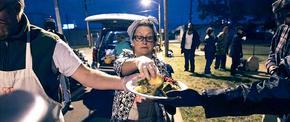
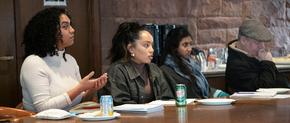









Comments
Sign in or create an account
Continue with Facebookor